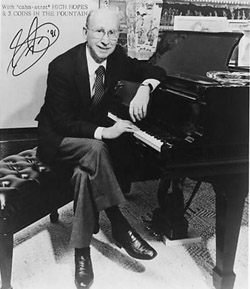
The Sammy Film Music Awards (SFMA) are named in honor of the movie lyricist, Sammy Cahn (1913-1993),
who received 4 Oscars and was nominated 26 times, more than any other songwriter.
These awards are based on the overall quality of the soundtrack and compilation releases.
How the music is used in the film is also considered.
Unlike other film music awards, SFMA includes older film music re-recorded or re-issued
as well as new film scores and songs.
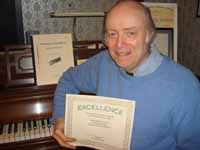
Since 1988, the Sammy Film Music Awards have been chosen each year for their Excellence
by Roger Hall, Managing Editor of Film Music Review (FMR) ,
member of the International Film Music Critics Association (IFMCA),
and author of the popular book, A Guide to Film Music: Songs and Soundtracks (now in its 7th edition).
The first awards were chosen for best score and song of 1988 – the year of Sammy Cahn’s 75th birthday.
When notified, Sammy said he was “flattered and honored” to have these awards named after him.
The first Sammy Film Music Awards were for:
Best Original Score: THE ACCIDENTAL TOURIST – music by John Williams.
Best Original Song: “Let The River Run” – words & music by Carly Simon.
32nd Annual Sammy Film Music Awards for 2019 Releases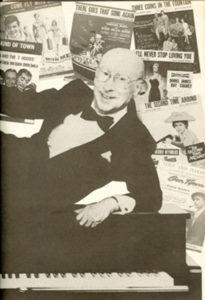
“What really makes the Sammy Awards worth checking out is the irregular addition
of irreverent and praiseworthy categories.”
— Timothy Sexton (Yahoo Network)
By Roger Hall, Managing Editor, Film Music Review
February 3, 2020
On this 32nd year for the longest running awards for film music recordings,
I am pleased to announce the latest awards for the Sammy Film Music Awards.
I thank both Steven Kennedy and Steve Vertlieb for their choices in two of the categories: New Film Score and Expanded Release.
The SFMA are based on recordings of soundtracks with new and vintage film scores or film songs.
These are the categories for this year’s Sammy Film Music Awards:
Best New Film Score

STAR WARS – THE RISE OF SKYWALKER
Music Composed and Conducted by John Williams Walt Disney Records D00318502
John Williams has now received more Sammy Film Music Awards than any other composer, 16 of them. This was the unanimous choice of FMR critics and is a thrilling conclusion to this iconic sci-fi series, especially in the brilliant “Finale” (track 19). FMR critic, Steven A. Kennedy wrote: “Hard pick here but it seems right this time.” YouTube video of STAR WARS: RISE OF SKYWALKER — here
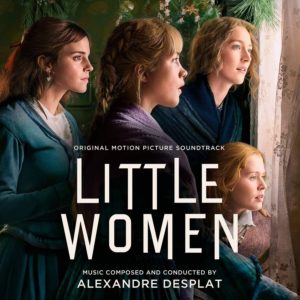
Special Merit Release:
LITTLE WOMEN
Music Composed and Conducted by Alexandre Desplat
Sony Classical 1943702752
FMR Managing Editor, Roger Hall, wrote: “This joyous score is worth designating for Special Merit.
With over an hour of delightful music, Desplat creates a carefully constructed tableau of musical depictions
for this classic Lousia May Alcott story, beautifully adapted by Greta Gerwig. A total musical delight!” YouTube video of the opening theme — here
Best New Film Song
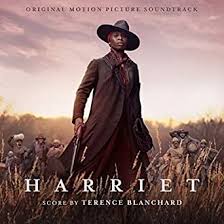
“Stand Up” song from the soundtrack of HARRIET
Music and Lyrics by Cynthia Erivo and Joshuah Brian Campbell
Music score by Terence Blanchard
Backlot Music
Roger Hall wrote: “This is an inspiring song and sung with much feeling by
the film’s marvelous actress and co-composer of this song, Cynthia Erivo. Terence Blanchard’s score is also noteworthy (pun intended!).
YouTube video of the powerful song — here
Most Overrated New Film Score Release
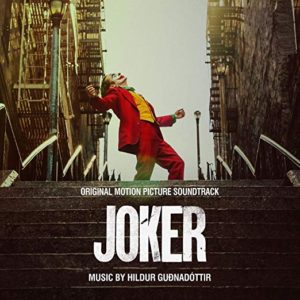
JOKER
Music by Hildur Guðnadóttir
Roger Hall wrote: “This is a choice that will probably not sit well with many who really like this score and film.
I found both the film and the score to be tedious in the telling of an excessively violent story of a deeply disturbed young man.
Is this dreary depressing cello themed soundtrack worth listening to away from the film? And does it complement the film’s story? Not for me!”
Best Album Producer
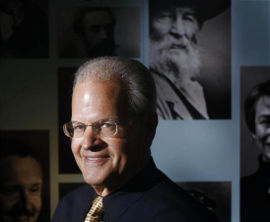
James V. D’Arc
Brigham Young University Motion Picture Archive – Film Music Archive
The Brigham Young University Film Music Archive is part of the L. Tom Perry Special Collections Library at BYU. The archive had its beginnings with the donation of Max Steiner’s entire collection of files and recordings by his wife, Lee Steiner. Since then they have acquired the complete recordings from Republic Pictures and collections from John Addison, Kenneth Darby, Jerry Fielding, Hugo Friedhofer and Ernest Gold. In the late ’90s, the Archive started preparing film scores for CD releases which are made available primarily through Screen Archives Entertainment.
James D’Arc has been the Archive’s curator since the 1970s. Craig Spaulding, executive producer at Screen Archives is also part of the staff. Ray Faiola, director of audience services at CBS helps out as a movie and sound preservationist and provides liner notes for many of the releases. Faiola has restored more than 70 scores for commercial release. Read more — here
Best Mult-Disc Vintage Film Music Release
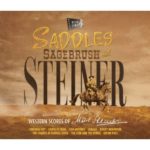
SADDLES, SAGEBRUSH AND STEINER, 1940-1953
Music by Max Steiner from
VIRGINIA CITY, SANTA FE TRAIL, SAN ANTONIO, DALLAS, ROCKY MOUNTAIN,
THE CHARGE AT FEATHER RIVER, THE LION AND THE HORSE and RATON PASS
With 40 page booklet by James V. D’Arc and Ray Faiola
BYU Film Music Archive FMA-MS124
YouTube Trailer for this 3-CD set — here
Best Vintage Score Release – Newly Recorded
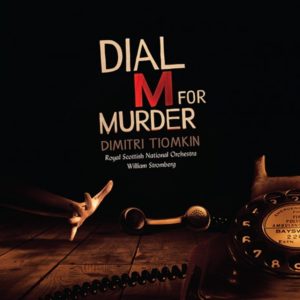
DIAL M FOR MURDER (1954)
Music by Dimitri Tiomkin
Royal Scottish National Orchestra
William Stromberg, Conductor
Score Reconstruction by Anna Stromberg and William Stromberg
Produced by Douglass Fake
Intrada CD INT 7157
Roger Hall wrote: “This is a marvelous restoration of one of Tiomkin’s memorable lesser known 1950s scores.”
Preservation Award – Best Expanded Release
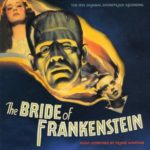
THE BRIDE OF FRANKENSTEIN (1935)
Music by Franz Waxman
Album Produced, Restored and Mastered by Mike Matessino
La-La Land LLCD1508
Steven A. Kennedy wrote about this restored score:
“This new release allows us the chance to hear the original soundtrack restored to truly stellar results. There is something about the immediacy of this music that comes across in the recording. Surely, this odd film with its unknown composer likely had few proponents, but how this score came together and the resulting music would open the door for Waxman’s Hollywood career. It strikes me that this choice parallels several of the above newer scores as well—the more things change, the more they stay the same!”
Lifetime Achievement for Past Composer, Songwriter or Lyricist
By Roger Hall
Since 1988, there have been 31 past American film composers, arrangers and songwriters or lyric writers
named for this Lifetime Achievement, and each of them have made significant accomplishments in film music,
including receiving Academy Awards in Music (+ = number of these awards).
The 22 film composers and arrangers so far are (in the order of their listing):
Bernard Herrmann(+1), Henry Mancini (+4), Alfred Newman (+9), Max Steiner (+3), Miklós Rózsa (+3), Erich Wolfgang Korngold (+2), Dimitri Tiomkin (+4),
Franz Waxman (+2), Victor Young (+1), Hugo Friedhofer (+1), Johnny Green (+4), Bronislau Kaper, Alex North, Elmer Bernstein (+1),
Jerry Goldsmith (+1), , Aaron Copland (+1), John Barry (+1), David Raksin, Jerome Moross, Roy Webb, Leigh Harline, Alexander Courage.
The songwriters and lyricists are (in order of their listing):
Sammy Cahn (+4), Ken Darby (+3), Jay Livingston and Ray Evans (+3), Johnny Mercer (+4), James Van Heusen (+4),
Harry Warren (+3), Paul Francis Webster (+3), Ned Washington (+2).
I am pleased to pay tribute in this centennial year of the women’s Right to Vote to the first woman to receive an Academy Award in music.
The Lifetime Achievement in Film Music for this year goes to —
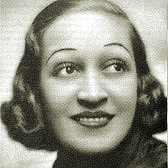
Dorothy Fields (July 15, 1904 – March 28, 1974).
She was an American lyricist who wrote over 400 songs for Broadway musicals and films.
Her best-known film lyrics are from the Fred Astaire-Ginger Rodgers musical, SWING TIME (1936)
with music by Jerome Kern and these three songs especially: “A Fine Romance,” “Pick Yourself Up,”
and “The Way You Look Tonight” – Academy Award for Best Original Song of 1936. Fred Astaire sings this song in SWING TIME — here
She was the only woman lyricist in music until Marilyn Bergman shared the Oscar with her husband lyricist Alan Bergman,
and music by Michel Legrand for “The Windmills of Your Mind” in THE THOMAS CROWN AFFAIR in 1968.
Other song lyrics by Dorothy Fields include: “On the Sunny Side of the Street” (1930), “Don’t Blame Me” (1948), “I’m in the Mood for Love” (1935), “You Couldn’t Be Cuter” (1938) and “Big Spender” (1966). Throughout her career, she collaborated with various influential figures in the American musical theater, including Jerome Kern, Cy Coleman, Irving Berlin, and Jimmy McHugh.
Along with Ann Ronell, Dana Suesse, Bernice Petkere, and Kay Swift, she was one of the first successful Tin Pan Alley and Hollywood female songwriters.
Throughout her 48-year career, Fields cowrote more than 400 songs and worked on 15 stage musicals and 26 movies. Her lyrics were known for their strong characterization, clarity in language, and humor. She was an amateur pianist and a lifelong lover of classical music; the awareness of melodic lines that this fostered in her was of value in the task of fitting lyrics to melodies. Fields’ professional longevity was rare at the time for a songwriter; it was underpinned by her imagination and her willingness to adapt to changing trends in American musical theater.
–Information courtesy of Wikipedia and The Dorothy Fields Website
Please Like the Sammy Film Music Awards page on Facebook — click here
See the list of past composers and songwriters named for Sammy Film Music Awards, 1988-2018 — go here
Copyright 2020 – Film Music Review. All Rights Reserved.
